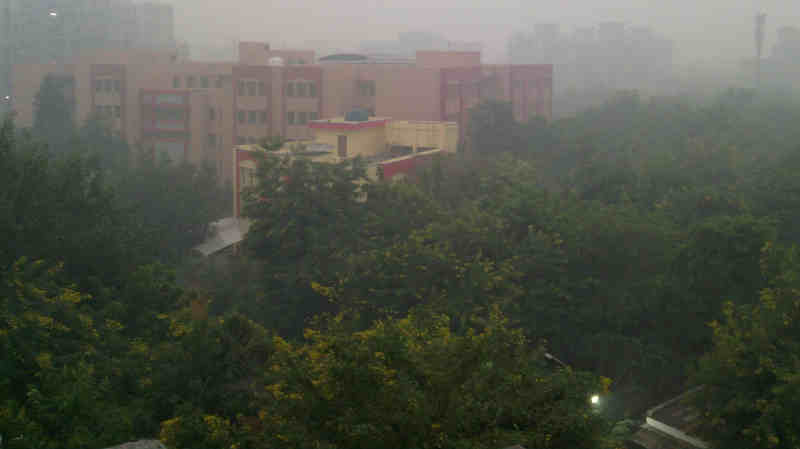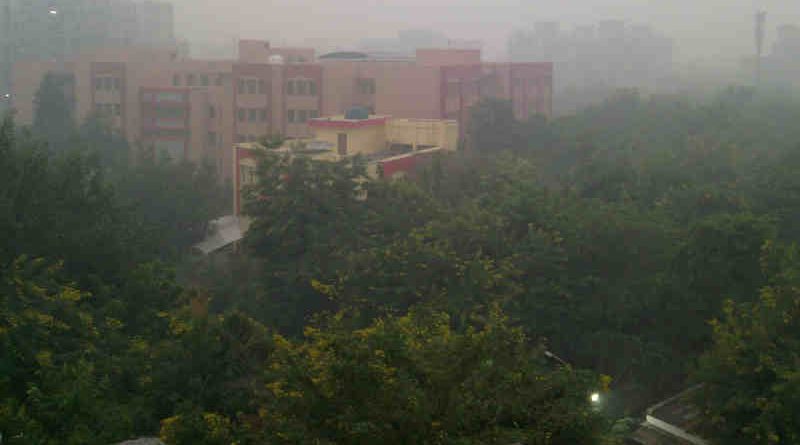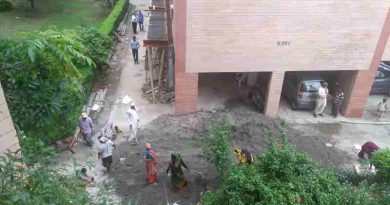22 of the Top 30 Most Polluted Cities Are in India: IQAir Report

India continues to feature prominently at the top of the most polluted cities ranking, with 22 of the top 30 most polluted cities globally.
New data from IQAir’s global air quality data platform, published in the 2020 World Air Quality Report and an online interactive global map, reveals the impact of Covid-19 lockdowns and behavioral changes on global particulate pollution (PM2.5) levels. The data was released Tuesday (March 16).
Key findings:
Covid-19 impact: In 2020, 84% of all monitored countries observed air quality improvements, largely due to global measures to slow the spread of Covid-19.
Air quality improvements across major cities in 2020 compared to 2019 include Beijing (-11%), Chicago (-13%), Delhi (-15%), London (-16%), Paris (-17%) and Seoul (-16%).
Only 24 out of 106 monitored countries met World Health Organization (WHO) annual guidelines for PM2.5 in 2020.
Climate change continues to affect air quality: The year 2020 is tied with 2016 as the hottest year on record. Wildfires and sandstorms fueled by the warming climate led to extremely high pollution levels in California, South America, Siberia and Australia.
India: In 2020, all Indian cities monitored observed air quality improvements compared to 2018, while 63% saw improvements compared with 2019. However, India continues to feature prominently at the top of the most polluted cities ranking, with 22 of the top 30 most polluted cities globally.
China: In 2020, 86% of the cities in China experienced cleaner air than the previous year. Despite this, Chinese residents are still exposed to PM2.5 levels more than 3 times the WHO annual guidelines. Hotan in northwestern China ranks as the world’s most polluted city, largely due to sandstorms exacerbated by climate change.
United States: Average particle pollution levels rose by 6.7% in 2020, despite measures to contain the spread of Covid-19. Record-breaking wildfires in California, Oregon and Washington caused U.S. cities to comprise 77 of the world’s top 100 most polluted cities in September 2020 (by monthly PM2.5 average).
In 2020, 38% of American cities did not meet the WHO’s guideline for annual PM2.5 levels. This is a significant uptick from the 21% of U.S. cities that did not meet the WHO guidelines in 2019.
South Asia: South Asia is the most polluted region of the world with Bangladesh, India and Pakistan sharing 42 of the 50 most polluted cities worldwide.
Europe: In 2020, about half of all European cities exceed the WHO’s target for annual PM2.5 pollution. The highest levels of PM2.5 pollution was found in Eastern and Southern Europe, with Bosnia Herzegovina, North Macedonia and Bulgaria taking the lead.
|
Travel Advisory for India As pollution levels remain dangerously high throughout the year in India, all travelers including business executives, tourists, and diplomats need to exercise utmost caution while planning to visit India – particularly India’s capital New Delhi. Moreover, companies and investors must not come to Delhi for setting up their businesses or for trade conferences as pollution can harm them as well as their families. Foreigners who have come to stay in India for their work, should preferably go back to their countries. Or, at least, they should not keep their children with them because Delhi’s pollution is very harmful for children. Delhi Government, the Indian Government, and the pollution-control agencies are not taking proper steps to control pollution because most politicians and bureaucrats in India are uneducated, careless, and corrupt. The extreme pollution in Delhi is usually compared to the poisonous gas chambers used by Nazi Germany during the Holocaust for the genocide of millions of European Jews. By Rakesh Raman |
Many countries in South East Asia, the Middle East, Africa, South Asia and South America continue to lack the equipment and expertise to monitor and report air pollution.
“The year 2020 brought an unexpected dip in air pollution. In 2021, we will likely see an increase in air pollution due to human activity, again,” said Frank Hammes, CEO of IQAir. “We hope this report will highlight that urgent action is both possible and necessary to combat air pollution, which remains the world’s greatest environmental health threat.”
The 2020 World Air Quality Report is based on PM2.5 data from 106 countries that has been measured by ground-based monitoring stations. Of the data sources included in this report, 66.6% of stations were operated by governmental agencies, while the remainder represent monitoring stations managed by local residents, non-profit organizations and companies.
IQAir is a Swiss-based air quality technology company, which operates in more than 100 countries worldwide.






